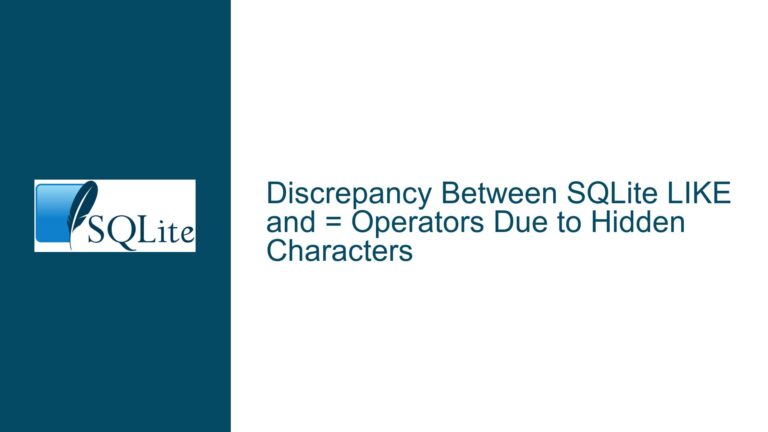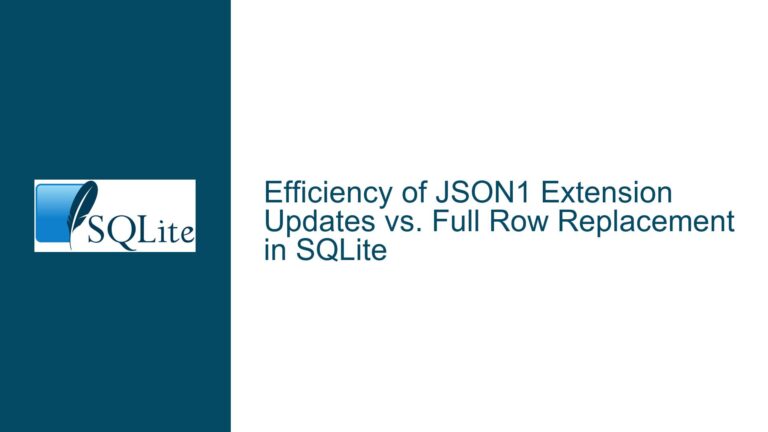Discrepancy Between SQLite LIKE and = Operators Due to Hidden Characters
Trailing Spaces and Non-Standard Characters in Genre Column The core issue revolves around a discrepancy in query results when using the LIKE operator versus the = operator in SQLite. Specifically, the query SELECT COUNT(*) FROM cds WHERE genre LIKE "Jazz%" returns 1100 results, while SELECT COUNT(*) FROM cds WHERE genre = "Jazz – Fusion" returns…









